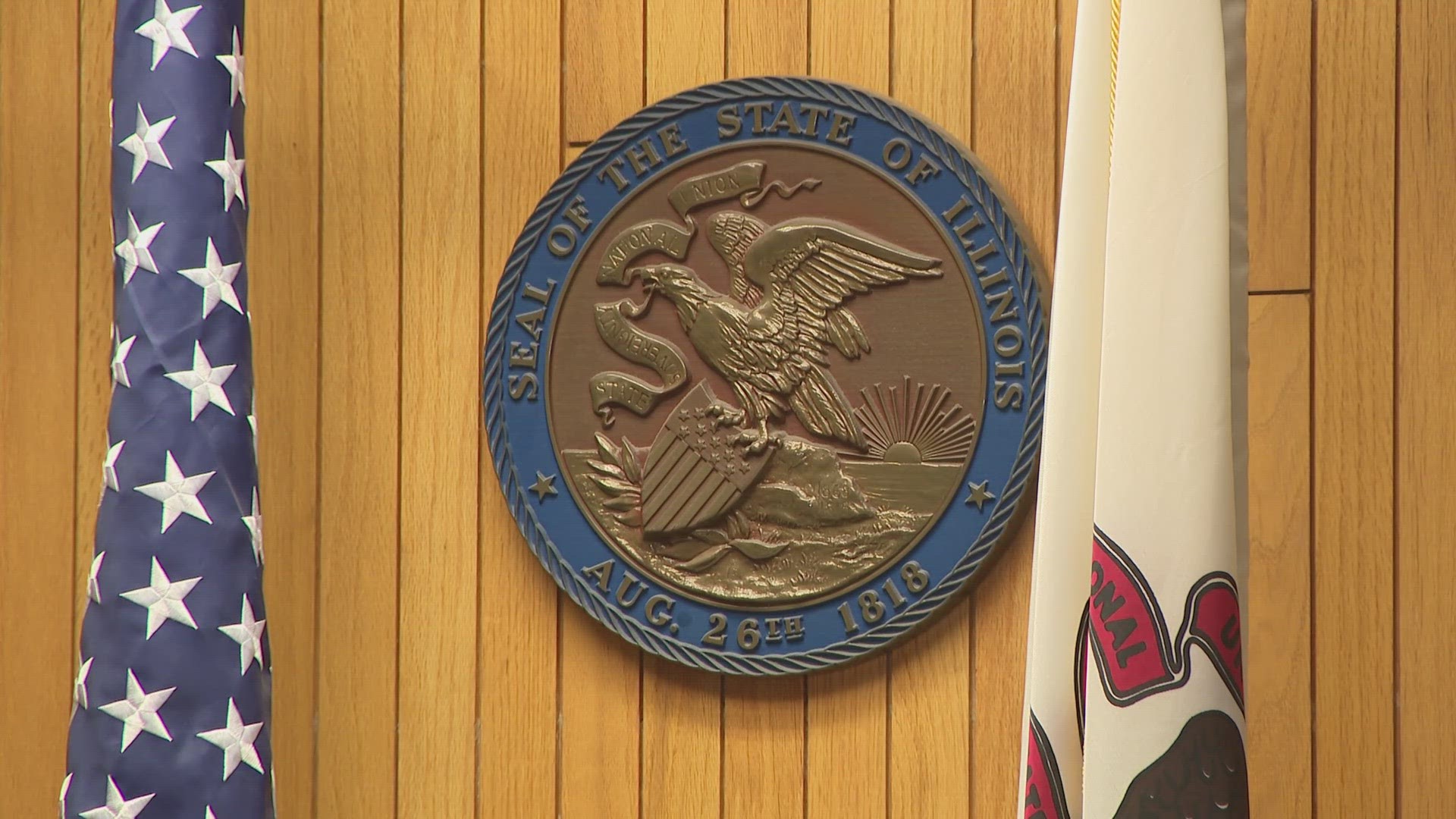BELLEVILLE, Illinois — In between echoes from the hollow clang of closing jail cell doors, a sergeant in the St. Clair County Sheriff's Department nonchalantly explained how many criminal defendants awaiting their trial were facing felony charges.
"We've seen our population as high as 550 or so," Sergeant James Hendricks said, acknowledging that jail staff has temporarily housed some accused defendants in the facility's gymnasium when beds were full.
Over the course of his 18-year career, he said he's rarely seen the jail population fall below the maximum capacity of 418.
"Right now, we have 474," he said, pointing to a computer screen showing a database breakdown of defendants in county custody. "Out of that 474, there's 398 that are on felony charges."
The screen made no distinction between violent, forcible felonies, and non-violent charges like drug crimes or retail theft.
By next Monday, judges across Illinois will have to draw that distinction and determine which of the defendants in their courtrooms could present a risk to the community. If their assessment finds no risk to the community, a judge could sign off on a petition from defense attorneys to allow their client out to await their trial from home.
"It's going to be pretty revolutionary in the way we do things," St. Clair County public defender Cathy MacElroy said. "We have a lot of violent offenses. A lot."
She suggested that — contrary to popular belief — county jails could ultimately see an increase in the number of detained people.
"There's been a lot of propaganda which has scared people, makes them think that people are just going to be released from the jail," she said. "I actually am worried that the opposite is going to happen, that we're going to have an increase in the jail population as a result of this act because the people that bonded out before will not be being released."
Sgt. Hendricks agreed with her assessment and said prosecutors could soon begin to file motions to ask the courts to revoke bond to defendants facing violent felony charges who have already posted their payments.
While police and public defenders both expect to see an initial wave of releases, they both anticipate a steady increase in the number of defendants who are denied their release without a chance to post bond.
MacElroy said she and her team of five other full-time public defenders have been working in advance of the Sept. 18 deadline to preemptively file petitions for release for the roughly 360 clients in her case files.
"I think we represent right now approximately 65% to 70% of the pretrial detainees," she said.
Once the new transition takes place, the St. Clair County Courts will designate one of its courtrooms for daily hearings to determine whether newly arrested defendants should be released or detained before their day in court.
"This is a massive change in the system. It's profound," MacElroy said. "Our system is designed for pleas, it’s not designed for trials. These changes are going to increase the need for trials."
After some back-and-forth discussion about how the criminal justice system evolved into what it is today, she issued a more precisely worded explanation.
"The founding fathers contemplated a justice system that guaranteed a fast and speedy trial for the accused by a jury of their peers," she said. "That system has eroded into a money-making enterprise that channels the criminally accused into pleas of guilty. Something along the way has gone horribly wrong."
Illinois Democrats, who passed the SAFE-T Act in January of 2021, said they set out to take money out of the criminal courts and remove the wealth factor that allowed some rich folks to buy their liberty and deprived poor folks of theirs.
Advocates who supported the statewide changes described the removal of reliance on wealth as a "great equalizer," even as they acknowledged some growing pains in the process.
In St. Clair County, home to some of the most severe poverty anywhere in the state, taking money bonds out of the system amounts to a major disruption, both for the government entities tasked with upholding justice and for many of the private attorneys that make their living defending the accused.
"Lawyers won’t want to do this work anymore," one attorney quipped. "This is going to eviscerate the private bar."
Defense attorneys who take cases to represent their clients often make their money by placing a lien against the bond payments. Now that the system is removing those funds from the equation, private lawyers and county clerks stand to lose significant streams of reliable revenue.
If the incentives for private attorneys dry up, then the public defender's office could see their workload swell even larger. In addition to the expectation of higher caseloads, the county workers anticipate more vigorous work in the early phases of their client's cases when the judge assesses their risk.
"I don't have enough lawyers to handle both the beginning and end stages of the case in great detail," MacElroy said. "There's only so many hours in a day."

